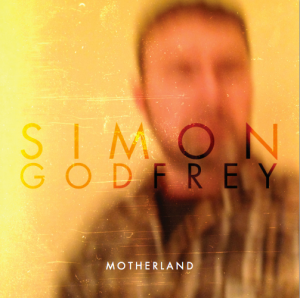The venue was intimate, shall we say: we were seated at a table near the back and were no more than 10 or 12 feet from the stage. A reasonable crowd for the venue - around 40-50 people - gathered. Most seemed knowledgeable of the original material and could be heard singing along, even when not energetically encouraged to do so by front man and vocalist John Wilkinson. The light show was good for a small venue, though I was a little disappointed by the sound quality in places.
The set lasted 2½ hours without a break other than the obligatory one before the encore, and was as follows:
Duke Medley (Behind the Lines, Duchess, Guide Vocal)Musically the songs were very tight and true to the originals, as one would expect from a tribute band. Brothers Mark & John Comish did admirable work on guitar and keyboards respectively, reproducing Hackett & Banks's riffs and solos spotlessly, and Dave Perry (bass) & James Cooper (drums) provided a solid rhythm section throughout. Vocally John Wilkinson sings Phil Collins's songs very well, with a good range and a powerful voice - he clearly models his own singing style on Collins. This fits well with the choice of material, and this is where my only gripe with the show surfaces.
Turn it on Again
The Carpet Crawl (with introduction from Dancing with the Moonlit Knight)
No Son of Mine
Ripples
Solsbury Hill
Land of Confusion
Follow You, Follow Me
Domino
Mama
Dodo/ Lurker
Abacab
Fading Lights
Misunderstanding
Spectral Mornings
In the Air Tonight
In The Cage Medley (In the Cage, Cinema Show, Slippermen)
Afterglow
Encore - I Know What I Like (including That's All, Illegal Alien, Your Own Special Way, Follow You, Follow Me, Stagnation)
A cursory glance through the set-list will witness that there was very little material from the Peter Gabriel era of the band: essentially three songs, with the introduction from a fourth, and instrumental sections from a further three. The rest of the material is heavily skewed towards the 80s material of the 3-piece band of Collins, Banks & Rutherford, and what they did sing from the 'classic' period of the band were all songs that Collins had performed on their live albums (and almost exactly as he had performed them, in terms of medleys and vocal improvisations). Now I am willing to concede that what they played was from the more commercially-successful, and therefore better-known albums, and that the Gabriel-era of the band only lasted for 6 of their roughly 40 years of active life, but as a purist I would perhaps have liked to have seen more from those formative years from a 'all-era' tribute band.
Having said that, it was good to see material from Gabriel, Hackett and Collins's solo careers included, and it was to be fair a great night: I was singing along at full throttle with the rest of them for most of the night! If you enjoy the music that Genesis made particularly from the 80s onwards, then check this band out: it may be the only opportunity you get to see it performed live these days.

